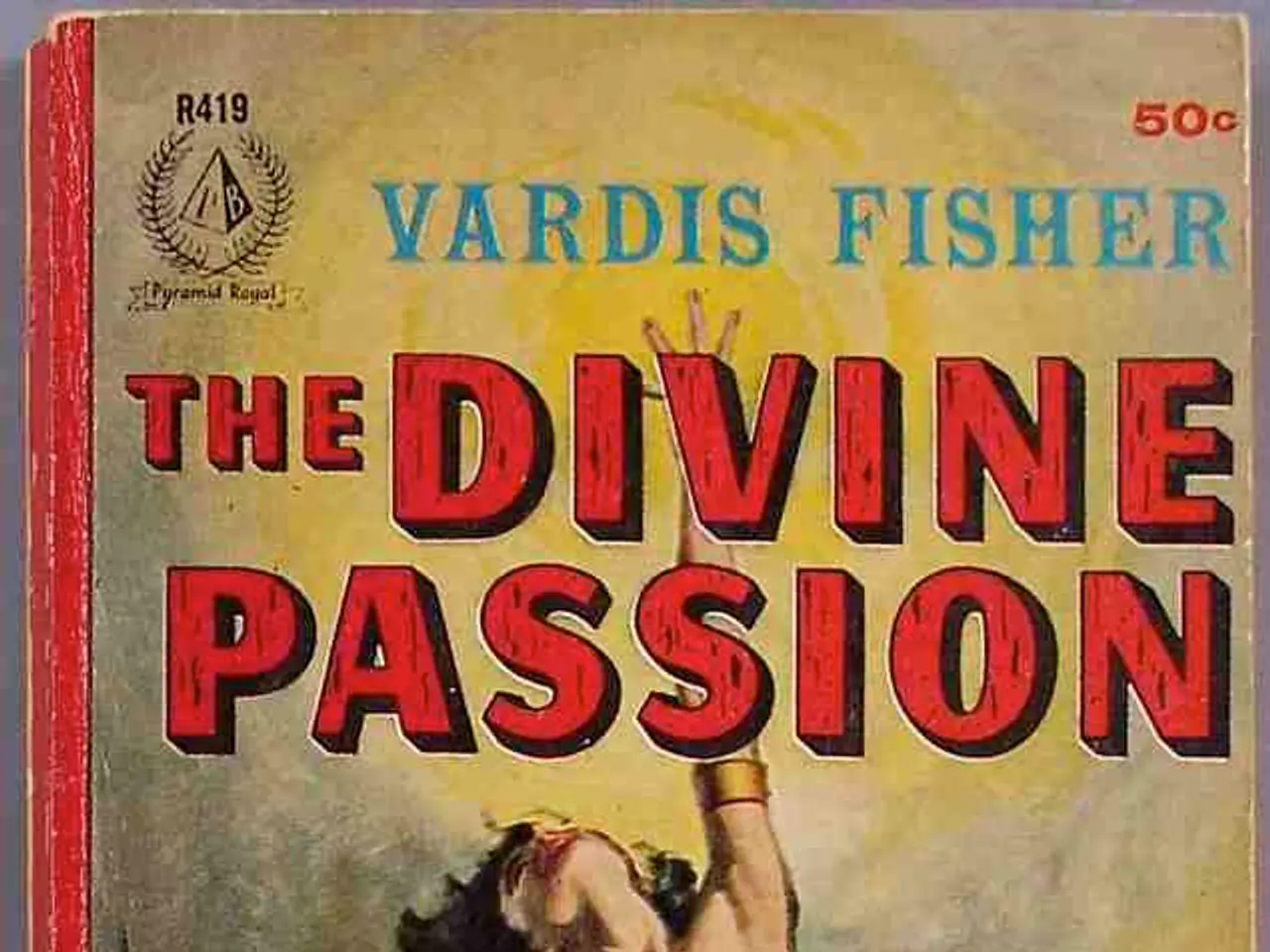Pondering the Authentic Happiness Derived from Fictional Superheroes?
In the realm of human emotions, falling in love with fictional characters has become a growing phenomenon, particularly among women. This affection, known as fictophilia, stems largely from a mental state similar to limerence, a state characterized by intense infatuation, idealization, and emotional investment in someone whose reciprocation may be uncertain or impossible.
The psychology behind this fascination is multifaceted. Emotional projection and identification play a significant role, as people often project their desires, needs, or ideal traits onto fictional characters, forming a vivid emotional bond that fulfills certain psychological needs in a safe, controlled way.
Moreover, the unpredictable emotional rewards found in unfolding storylines and character developments mimic the intermittent reinforcement typical in real-life relationships, enhancing attachment. Loving a fictional character can also increase feelings of belonging, improve self-esteem, and buffer against negative moods, functioning as a coping mechanism during loneliness or low self-worth.
Among women, several factors contribute to the growth of this attachment. Well-developed, emotionally complex male characters in media offer relatable and compelling personas that women may find attractive or emotionally satisfying. Fiction provides a risk-free environment to explore vulnerability, intimacy, and romantic feelings without social judgment or fear of rejection.
The rise of fandom culture and online communities enhances interaction and shared enthusiasm around fictional characters, creating social reinforcement and validation for these attachments. Women often engage more with narrative-driven, character-centric stories, facilitating deeper emotional involvement.
However, the impact of fictophilia on real-life relationships and sexual preferences is still being studied. It's worth noting that fictophilia can challenge traditional gender roles and expectations, offering an empowering outlet for women to embrace their sexuality, desires, and agency without fear of judgment or shame.
Popular fictional men among women include Edward Cullen from Twilight and Jamie Fraser from Outlander. Fan fiction allows women to explore their fictophilia and create their own narratives, providing an outlet for creativity and self-expression. Social media connects women who share a love for fictional men, allowing for community building.
Engaging in fan fiction has been shown to have positive effects on women's mental health and well-being. However, it's important to note that social media can contribute to feelings of comparison, insecurity, and anxiety. Communication and consent play a crucial role in navigating fictophilia in relationships.
The future of fictophilia holds the potential for significant societal impact, with the possibility of more diverse representation and a greater understanding of its effects on individuals and society. As our relationship with fictional characters continues to evolve, so too does our understanding of love, identity, and human connection.
- In the realm of human emotions, the influence of fictional characters on women's mental health and well-being is a growing phenomenon, often rooted in a state similar to limerence.
- The psychology behind this fascination encompasses emotional projection and identification, offering a safe, controlled way to fulfill psychological needs.
- Additionally, the unpredictable emotional rewards in unfolding storylines and character developments replicate intermittent reinforcement, enhancing attachment.
- Engaging with well-developed, emotionally complex male characters can function as a coping mechanism during loneliness or low self-esteem, providing a risk-free environment to explore vulnerability and romantic feelings.
- Fan fiction, social media, and online communities amplify this connection, creating social reinforcement and validation for these attachments, particularly among women.
- The influence of these attachments extends to real-life relationships and sexual preferences, potentially challenging traditional gender roles and offering empowerment for women to embrace their sexuality and desires.
- Popular fictional men among women, such as Edward Cullen from Twilight and Jamie Fraser from Outlander, fuel this growth, providing inspiration for stories and shared experiences within fandom culture.
- As our relationship with fictional characters continues to evolve, it may lead to more diverse representation and a greater understanding of its impacts on individuals and society, shaping our understanding of love, identity, and human connection.




